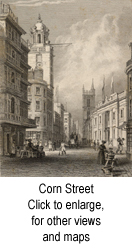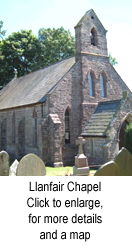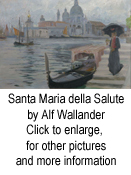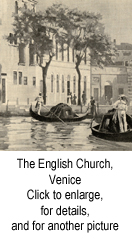 |
|
|
|
JOHN DAVIES MEREWEATHER
John Davies Mereweather was born in Bristol in England on 7 September 1816. He was the son of John Mereweather (1771-1845), born in Bristol, and his second wife Anna Maria Davies (1778-1831), who was born near Newcastle Emlyn but was living in Abergavenny at the time of her marriage. Both came from lines of craftsmen, shopkeepers and traders. In his first marriage, to Ann Grimes (c. 1775-1809), John Mereweather had three children, Samuel (1798-1839), Ann (1800-1875), who both died childless, and Matilda (1801-1875) who married Stephen Poyntz Denning, the artist. In the 1820s the family's combined house and shop stood on the corner of Small Street and Corn Street close to the church of St Werburgh, where John Sr and Samuel took their turns as wardens. John Davies Mereweather was the only child of his father's second marriage. Nothing has been traced about John Davies Mereweather's schooling. His mother died already when he was fourteen; by then, in his own words, his half-sister Ann had become his truest guide. The relations with his father may have been strained, for it was only through a last-minute codicil to John's will (a codicil dated in 1845) that John Davies Mereweather inherited anything at all; Ann was the main beneficiary. In 1832, just before his sixteenth birthday, Mereweather made a tour of the Pyrenees, visiting Pau, Tarbes, Lourdes, Bagnères de Bigorre, Cauterets, the Vignemale, Gavarnie, Luz-St-Sauveur, the Tourmalet. Click on the Pyrenees link above.
During the years 1836-1860, Mereweather recorded in a book of Memoranda (now in the National Archives in Stockholm) quotations in poetry and prose from various authors, Shakespeare, Gibbon, Shelley, Wordsworth, Homer, Sophocles, Cicero, Juvenal, Dante, Petrarch, Rousseau, Voltaire, Madame de Staël, Guizot, Goethe, et al. The quotations are in English, Greek, Latin, Italian, and French. Mereweather also wrote down his own thoughts, poems and narratives, e.g. a 198-line poem about Charles XII of Sweden, inspired by Voltaire. In 1843 he sent in this poem for the Sir Roger Newdigate Prize for English Verse, but it was "rejected by the poetaster Committee of umpires". A few shorter poems seem to be addressed to a specific person whose identity is not revealed. In 1839 Mereweather had entered Oxford University where he was admitted to St Edmund Hall, known mainly as a centre of Evangelicalism in a time of religious controversy. He graduated BA in 1843. During the summer months of 1844, Mereweather travelled to Normandy and Paris. He landed at Le Havre and visited Honfleur, Caen and Bayeux; then he ascended the Seine to Rouen. He continued by train to Paris where he stayed for almost four months. Among the people he met were Mr and Mrs Giles and the Rev. J. Lovett. He had plans to get a teaching position, but these came to nothing. Click on the Paris link above for more details. On 8 December 1844, Mereweather was ordained deacon in the little church of St Faith in St Paul's churchyard, London, and on 15 January 1845 he did his first service at Llanfair in the parish of Llantilio Crossenny not far from Abergavenny in the diocese of Llandaff. Later, in 1848, he is a curate at Holy Trinity, Stretford Road, Hulme, Manchester (this church was founded in 1843 and closed in 1953).
Mereweather could not settle down and decided to emigrate to Australia. He described this in two books: Mereweather had the intention to work in the Port Phillip district (in the south of New South Wales), about to be the separate colony of Victoria. But he presented himself badly with sketchy recommendations so Dr Charles Perry bluntly refused to license him. Instead, he found his first employment, in October 1850, in Tasmania, only to be transferred after some six months to the inhospitable Edward River district in New South Wales. His last year in Australia he spent in Sydney. For more details about Mereweather in Australia, click on the Australia/Rolfe link above.
In September 1851, in a letter to a friend in England, Mereweather had expressed his hopes to return home after a few years, "settling down quietly in England, or obtaining a responsible Chaplaincy in the South of Europe" (Life on Board, p. 78). And indeed, in 1855 we find him in Venice (which was still under Austrian rule). He became English chaplain, under the bishop of Gibraltar, a post he retained until he retired in 1887.
As had been the case in
Melbourne, Mereweather's arrival in Venice had its
controversies. In February 1857, Frederic Chrenier (or Charnier,
Chernier?) who "without much arrogance" called himself "the
principal English resident" in Venice wrote to the bishop of
London, Archibald Tait, pointing out that Mereweather had come
"to Venice under the Sanction of the Bishop of Gibraltar and for
some time administered divine service in the Palace of the
Consul General"; however, "the Consul General withdrew his
protection from Mr Mereweather, and closed his Palace". Since
the correspondent understood that it was the intention of
Mereweather to apply to be formally appointed minister to the
members of the Church of England in Venice, he suggested that
the bishop, prior to granting such an application, should make
enquiries in Venice as to Mereweather's moral and religious
principles. These two letters are in the Tait papers in the Lambeth Palace Library in London. Mereweather had his
quarters in Palazzo Contarini degli Scrigni-Corfù on the
Grand Canal. Click on the Venice Map link above. During all Mereweather's time in Venice there was no
English church building,
so Mereweather held services in his own home; in
the words of Bradshaw's
Continental Railway Guide of February 1881: "Church of Eng.
Service (S.P.G. [Society for the Propagation of the Gospel])
– Sunday at 11.30 a.m., at the chaplain's residence, Rev. J.
D. Mereweather, B.A., Pal. Contarini San Trovaso". According to Lady Layard (see
below), writing in 1887, Mereweather had "for the last 30
years ... droned out a service in his rooms at the top of
the Contarini degli Scrigni".
(A proper church was dedicated in 1892 in Campo
San Vio: St George's Anglican Church.) Then there were three clerical tracts: These titles are of little interest today. The first, for
instance, is a pamphlet calling for the uniting of all
religions in a happy brotherhood based on the Anglican Church, representing Christianity at its best. The Papacy
is called idolatrous and polytheistic, whereas Continental
Protestantism is said to be bordering on atheism. For details on how some of Mereweather's books may have inspired Frederick Rolfe, click on the Australia/Rolfe link above.
Mereweather's neighbours, in Palazzo Contarini Corfù, were George Frederick Greaves, late Captain of the 60th Rifles, rentier, his wife Ann née Richards and their large family. George Frederick Greaves died in 1869. George Richards Greaves, the couple's eldest son, pursued a career in the British Army; his autobiography, Memoirs of General Sir George Richards Greaves, was published in 1924, two years after his death. Three younger sons entered Austrian military service. The most successful, Joseph Greaves, reached the rank of Fregattenkapitän (Commander); he died in Vienna in 1914. Joseph Greaves's daughter Margaret was Mereweather's goddaughter. In 1871, one of the Greaves daughters, Adela, married a
Swedish officer, Lieutenant Carl Edward Arfwedson, of the
Royal Life Dragoons; they were both born in 1847. The young
couple left Venice for Sweden.
One of their four children, Jacques born
in 1875, became Mereweather's godson. In the summer of 1877, if not before,
Ann Greaves decided to visit her daughter Adela Arfwedson in
Sweden. Mereweather accompanied her on the trip. Adela and her
family lived at Rålambshov on the outskirts of Stockholm. On 16 August, there is a notice in a local newspaper in the
university city of Uppsala, some 70 km north of Stockholm,
mentioning the following three guests at the principal hotel:
"rentiere mrs Greaves, Venice; fru Arfwedson, Stockholm;
ecclesiastic Rev. J. D. Moreweather, Venice". The party
returned to Stockholm, but, tragically, on 27 August 1877 Ann
Greaves died of heart failure. She was buried three days later
in Stockholm's Northern Cemetery. For many years, Mereweather had been troubled by the conditions for burying non-Catholics in Venice. He took the matter up with the Venice municipality, and he voiced his concern in print and in letters the Foreign Office in London, but to no avail. Now, a few days after Ann Greaves's burial, Mereweather acquired a grave for himself in the same cemetery. For a detailed discussion about all this, click on the Graves link above. Mereweather would have made at least two more visits to Stockholm according to information found in local newspapers. On 26 July 1880, Dagens Nyheter mentions a Mr Mereweather from Venice as staying at Hotel Rydberg. And in October 1888, Mereweather held divine services at the English Church in Vallingatan (Wallingatan) on two Sundays, this according to Aftonbladet and Svenska Dagbladet. The purposes of these visits are not known.
In September 1882,
during the reign of King Umberto
I,
north-eastern Italy suffered from heavy rains which, together
with melting snow from the Alps, caused disastrous inundations.
The Adige burst its banks, and large areas were flooded. Verona,
in particular, suffered serious damage. Communication between
that city and Venice was entirely cut off.
Mereweather
reports to English newspapers that the "misery,
ruin, and suffering are widespread and painful to contemplate".
And "scantily-dressed men, women, and children may be seen
gazing in dumb despair on the ruins of the dwellings from which
they escaped as these crumbled and dissolved amid the surging
waters". According to the Italian consul in Manchester, nearly
200,000 persons were rendered homeless. In November, Mereweather
writes, "a fresh series of storms swept over this
unfortunate country and made matters infinitely worse".
Sympathisers in England offered assistance, and in Venice "the collections
at the English church from tourist sources amounted to over
2,000 francs, the English residents having also given very
generously". In December, the amount had risen to almost 5,000
francs.
In contrast to the relatively short time he spent on his posts in Wales, England and Australia, Mereweather was chaplain in Venice for thirty-two years. This would have made him the longest serving English chaplain in Venice ever. But Mereweather's bishops do not seem to have been very much impressed by his performance, for, when he retired in 1887, no eulogy was published for him, which would have been customary. Lady Layard née Enid Guest, who lived in Venice 1884-1912, mentions Mereweather in her diaries (now in the British Library). She is not kind to him, but it should be borne in mind that when she settled in Venice, Mereweather was already an old man, soon to retire and probably distressed by the constant lack of support from the Church of England and the British authorities. Moreover, the post as chaplain was not easy to fill; in the twenty-three years after Mereweather, until 1910, there would have been nine ordinary incumbents and almost as many temporary ones. It would seem that Mereweather was
thinking about leaving Venice after retiring. Among the
Arfwedson papers in the National Archives in Stockholm there is a letter to Mereweather at a
Central London address. The letter, which is very kind, is
dated Blickling near Aylsham, Norfolk, October 13,
1888, and signed M. S. Meyrick. Marion Susan Meyrick was the
wife of Frederick Meyrick, Church of England clergyman, Rector
of Blickling. The letter starts, "My dear Cavaliere, I thank
you very much for your letter telling me of your return to
England. I am very sorry that we lose your presence at Venice,
where you will be much missed by residents, visitors, and many
in England. You have been there a long time and done a good
work. I well remember your being introduced to me years ago by
Christopher Wordsworth. …" In 1893, the Swedish painter Gustaf Cederström (1845-1933), half-cousin of Carl Edward Arfwedson, visited Venice in company with his fellow artist Alf Wallander (1862-1914). Cederström called on Mereweather and would have brought with him some message from the Arfwedson family. Also Wallander may have called on Mereweather, for, on 22 June, he sent in his card. Wallander made at least one painting there and then, a view of Santa Maria della Salute. In September 1895, nine months before his death, Mereweather wrote an English translation of Ode 1. 11 by Horace. Click on the Envoi link above. Mereweather died on 18 June 1896. For a summary of his will, made up in 1894, click on the Will link above. On 26 June 1896, The Times published the following note from a correspondent writing from Venice under the date of 19 June: "Yesterday evening there died at Venice in his house, Palazzo Contarini, San Trovaso, at the age of 81 [79], the Rev. Cavaliere J. D. Mereweather, B. A. Oxon., the oldest English chaplain in Italy. He entered upon his duties in 1855, and continued in them until 1887, when he retired from the Venice chaplaincy, although still residing in his adopted city. It is curious to think that he was the direct successor in Venice of Dr Henry Wotton ..., for between Bedell's time and his there were no chaplains." William Bedell was appointed chaplain to Dr Wotton, English ambassador to Venice, in 1607, but he would not have been Mereweather's nearest predecessor. In fact, until the fall of the Republic in 1797, Anglican chaplains accompanied all British embassies to Venice as an assertion of English Protestantism. These chaplaincies were able to count on Venice's legendary policy of toleration which was, in their case, not really religious but rather a policy designed to assert the sovereignty of the Venetian State against the dictatorial policies of the Counter-Reformation Church of Rome. For this information I owe a debt of gratitude to Peter Lauritzen, historian and author and resident of Venice for many years.
In the National Library of Australia (MS 9453), there is a 67-page typescript by the late Dr John Barrett entitled From Bristol Trades to a Gentleman of Venice: The Story of J. D. Mereweather. For the full text, click on the Dr Barrett link above. Dr Barrett was Reader in History at La Trobe University, Bundoora, Victoria. In 1986, with kind permission of Dr
Barrett, I published a short article (followed up in 1996) in
The Journal of the Bristol and Avon Family History Society
making use of his material. The story is repeated herem,
wirh a few earlier errors of mine corrected, and
much expanded.
Furthermore, I have continued my research-work
and added a considerable amount of new material over the
years; to give but three examples:
Mereweather's visits to Sweden, Mereweather being knighted,
and Frederick Rolfe satirising Mereweather. All quotations come from
printed works and manuscript originals as stated. Mereweather is elusive. My impression is that Mereweather, in Venice, ordered his life as comfortably as possible according to his own idiosyncrasy not bothering about whether he annoyed others, then or in the future. Mereweather's Australian diaries have often been drawn on by historians, but Mereweather himself has received little recognition. The same goes for his forty years in Venice, where he wrote books of various kinds. Historians, if they notice Mereweather at all, tend to give him the cold shoulder. A recent example is Paradise of Cities (London, 2003) by John Julius Norwich where Mereweather appears anonymously and en passant as "the local English chaplain" (p. 203). And, as Dr Barrett pointed out: "The Australian Dictionary of Biography does not even know Mereweather, although some with no greater claim to recognition have gained entry." This is sad. OLE PEIN
|
|
|
|
|
||




